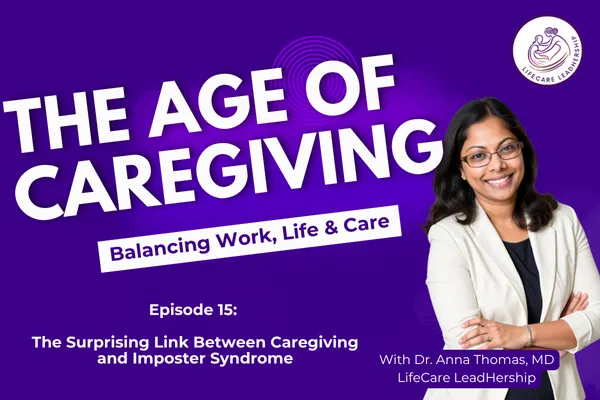
The Surprising Link Between Caregiving and Imposter Syndrome
When Confidence Starts to Crumble
You used to feel sharp. Capable. Even confident.
But lately?
You second-guess your decisions.
You wonder if people can tell you're stretched thin.
You fear someone is going to notice that you’re not quite yourself.
That creeping doubt?
That voice whispering, “I’m slipping”?
It’s not just stress.
It’s imposter syndrome—and caregiving can intensify it.
Why Caregiving Can Fuel Imposter Syndrome
Imposter syndrome is the belief that you’re not as competent as others think you are. It makes you feel like a fraud, waiting to be found out—even when you’re doing well.
Now add caregiving into the mix:
Coordinating medical appointments
Managing a household
Making emotional and financial decisions
Supporting others without support for yourself
All of it is done behind the scenes. No recognition. No training. No safety net.
It’s no wonder you start feeling like you’re falling short.
But here’s the truth:
You’re not failing. You’re adapting.
What feels like weakness is often resilience showing up in disguise.
Step 1: Redefine Success for This Season
Imposter syndrome often starts with comparison.
You compare yourself to:
Who you were before caregiving
Colleagues who aren’t caregivers
An idealized version of what success is supposed to look like
But caregiving is a new season. It calls for a different standard.
Instead of chasing old performance metrics, ask:
What truly matters this week?
What’s one thing I led well today?
Where can I give myself credit for showing strength, not just speed?
You are not falling behind. You are leading under pressure.
And that deserves acknowledgment.
Step 2: Track Evidence, Not Emotion
Imposter syndrome thrives in fog.
You feel behind, even when facts say otherwise.
That’s why I ask my clients to create a “proof list” each week.
Write down:
Tasks you completed
Decisions you navigated
Moments when you showed strength
Positive feedback, even casual compliments
Small wins, like remembering to reorder medications or coordinating logistics
You’ll be surprised by how capable you are—when you stop relying on how you feel and start documenting what you’ve done.
Step 3: Rebuild Your Confidence Ritual
Before caregiving, you probably had rituals that anchored your confidence:
Time to think.
Space to breathe.
A rhythm of progress.
Caregiving disrupts that rhythm. So now, you rebuild it—intentionally.
Try these simple rituals:
Morning reflection: What am I proud of from yesterday?
Post-meeting check-in: How did I show up with leadership?
Weekly reset: What do I want to carry forward, and what do I want to leave behind?
These aren’t just feel-good exercises.
They are recalibration tools that bring you back to yourself when everything else feels unstable.
You Are Not an Imposter
You are not the same person you were before caregiving.
But that doesn’t mean you’re less.
It means:
You’ve adapted under pressure
You’ve managed emotional and logistical load that few people see
You’ve shown up in hard seasons—and stayed the course
That is not imposter energy.
That is leadership.
Final Word
Imposter syndrome doesn’t mean you’re falling short.
It often means you’re doing extraordinary things without the acknowledgment or support you deserve.
That changes today.
You’ve got this.
And Dr. Thomas has your back.
Explore More from The Age of Caregiving™
🎧 Listen on Spotify: https://www.lifecareleadhership.com/podcast
📺 Watch on YouTube: https://www.youtube.com/@ageofcaregiving
📝 Read more on our Blog: https://lifecareleadhership.com/ageofcaregiving
LINKS
Workshops: https://lifecareleadhership.com/workshops
Courses & Coaching: https://lifecareleadhership.com/programs
Book: Balancing Care While Working: https://lifecareleadhership.com/balancingcarebook
Book: Dementia Care Confidence: https://www.lifecareleadhership.com/dementia-book
For organizations & Leaders: https://lifecareleadhership.com/corporate-solutions
The views and opinions expressed in this post are solely my own and do not reflect the views of any past or present employer of Dr. Thomas. This content is for educational and informational purposes only and is not intended as medical or legal advice.
